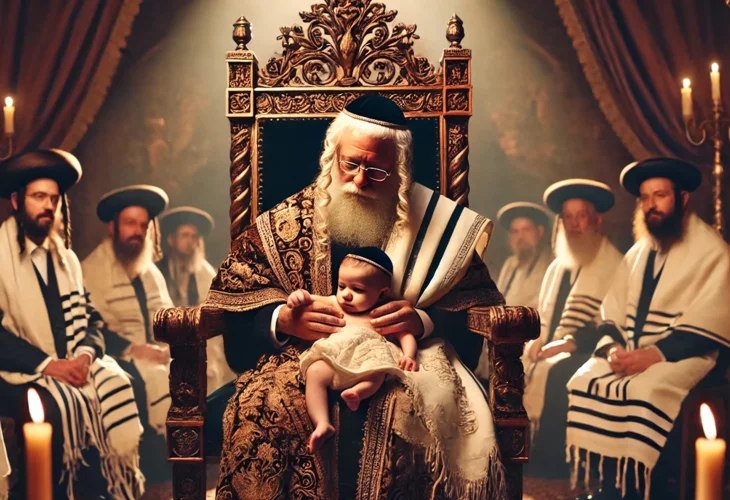Issues in the Bible
Why Jewish Circumcision Is Unique: The Hidden Meaning of the Covenant of Avraham
From Avraham’s command to modern times, circumcision remains a shared legacy — but only Israel’s version embodies the covenant’s inner holiness and purpose

In this week’s Torah portion, we read about God’s command to Avraham to perform circumcision (brit milah) — the very first commandment given to the Jewish people, and the one that has been kept more faithfully than any other.
For four thousand years, Jews have continued this covenant. Even those who are distant from Jewish practice still circumcise their sons, almost without exception.
Who Else Was Commanded to Perform Circumcision?
Interestingly, Jews are not the only people in the world who practice circumcision. When Avraham was commanded to perform the brit milah, he was told to circumcise “every male among his household”, including his son Yishmael.
However, according to the sages, the descendants of Yishmael are not commanded to perform circumcision as part of the divine covenant. This is derived from the verse: “For through Yitzchak shall your offspring be called” (Bereishit 21:12), which excludes Yishmael from the covenantal lineage.
Avraham had other sons later on — the sons of Keturah. The sages tell us that these descendants appeared again generations later, attending Yaakov’s funeral (Sotah 13a) and later claiming inheritance rights to the land together with the descendants of Yishmael (Sanhedrin 91a).
According to Maimonides (Laws of Kings 10:8), the descendants of Keturah are indeed obligated to perform circumcision by virtue of God’s command to Avraham and “his seed.” Most early authorities (rishonim) agree with this view.
This makes the descendants of Keturah unique: besides the Seven Noahide Laws that apply to all humanity, they carry one additional mitzvah — circumcision, just like Israel.
The Difference Between the Jewish and Ishmaelite Circumcision
The obligation of Keturah’s descendants includes only the cutting (milah), not the uncovering (priah) — the second step of the Jewish circumcision. The Zohar refers to the circumcision of Yishmael’s descendants a “vain circumcision” (milah reikani).
The descendants of Yishmael see circumcision only as the act of cutting — a physical sign or test of endurance. They perform it on adults, not infants, emphasizing the pain and suffering as a source of pride, viewing it as an act of strength and devotion through hardship.
The Jewish view, by contrast, sees circumcision as a holy covenant, not an act of suffering. The pain is not the goal but an unavoidable part of entering a sacred bond. Jews were therefore commanded not only to cut but also to perform priah, uncovering the covenantal mark to complete the physical and spiritual repair.
The Talmud (Yevamot 71b) states that Avraham was not explicitly commanded to perform priah, but Tosafot explain that Avraham did so voluntarily, understanding the deeper purpose of the mitzvah. The descendants of Yishmael, however, did not grasp this and perform only the cutting.
Why Yishmael’s Circumcision Is “Incomplete”
In truth, priah is relevant mainly for infants, whose bodies are still soft and adaptable. At age thirteen — when Yishmaelim perform circumcision, priah is less practical.
Thus, Divine Providence arranged it so that Yishmael’s circumcision would remain partial, symbolically incomplete — a “hollow” sign of the covenant without its inner rectification.
The Covenant Before the Torah
The brit milah was the covenant between God and Avraham even before the giving of the Torah. In fact, before receiving the Torah at Sinai, the Israelites were commanded to be circumcised again; without it, they could not receive the Torah.
This covenant predates the Torah itself, which is why the descendants of Avraham — both Israel and others, continue to observe it in some form. However, only Israel performs it as a complete covenant, with priah, the spiritual correction that transforms it from a physical act into a sacred bond.
When the Torah introduced priah, it revealed the unique identity of Israel within Avraham’s family. Conversion to Judaism therefore requires both circumcision and priah: “One who is circumcised but does not perform priah — it is as if he were not circumcised at all.”
A circumcision without priah belongs to the nations, not to Israel. It marks the body, but not the soul.

